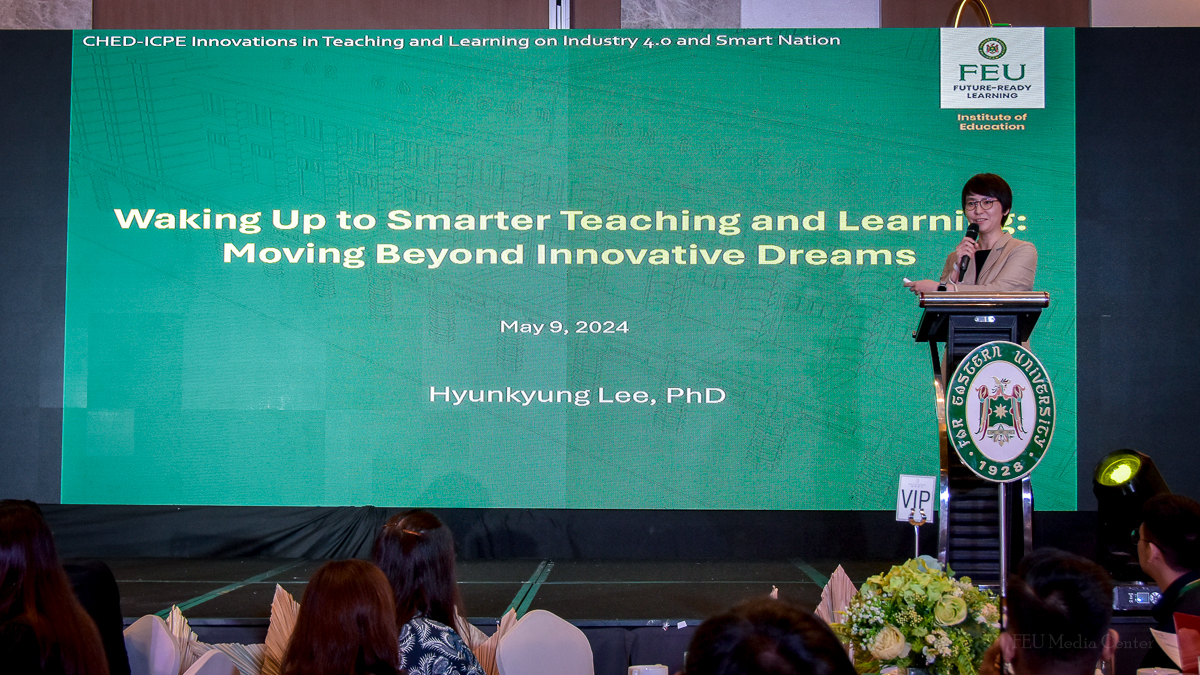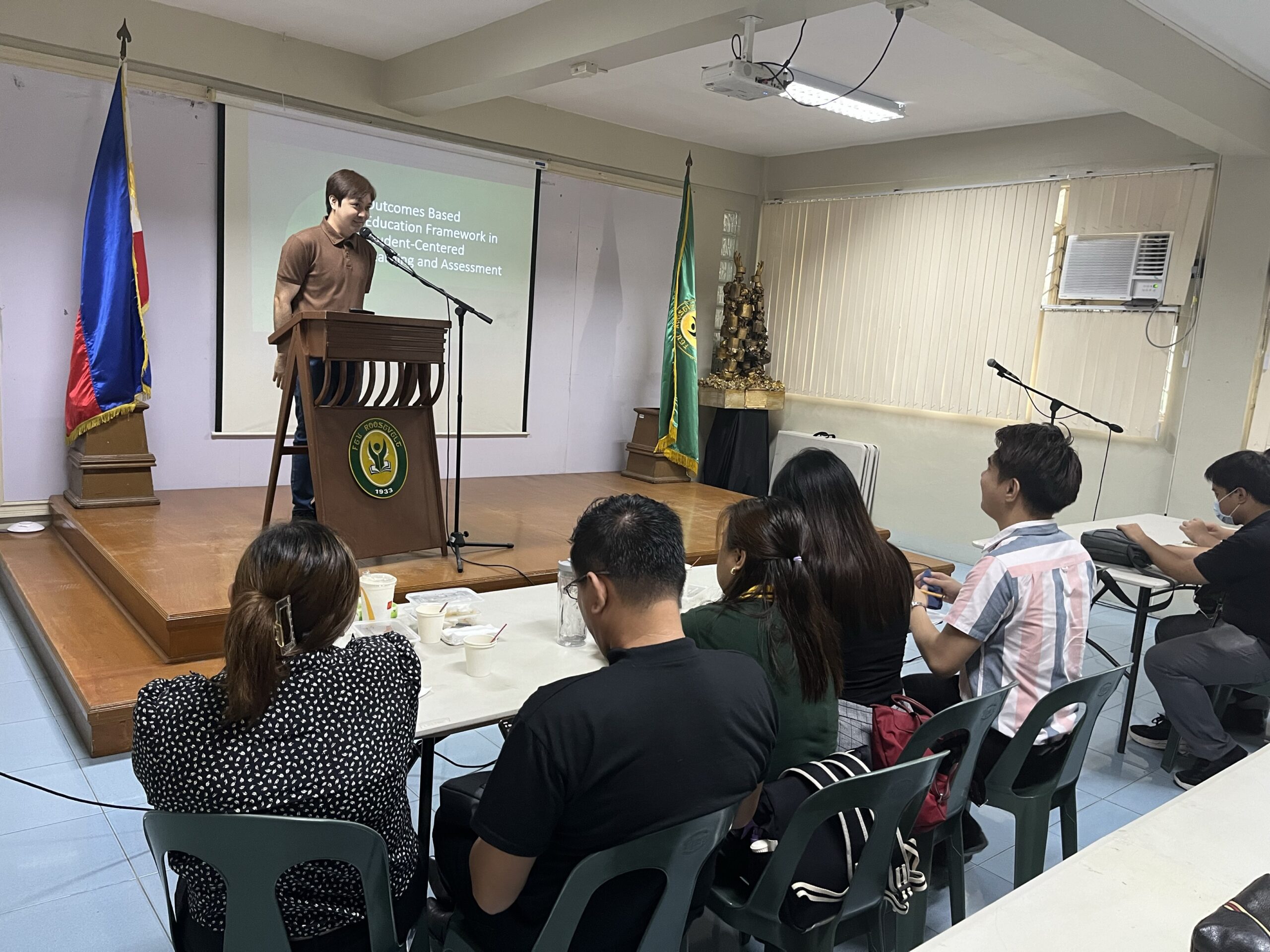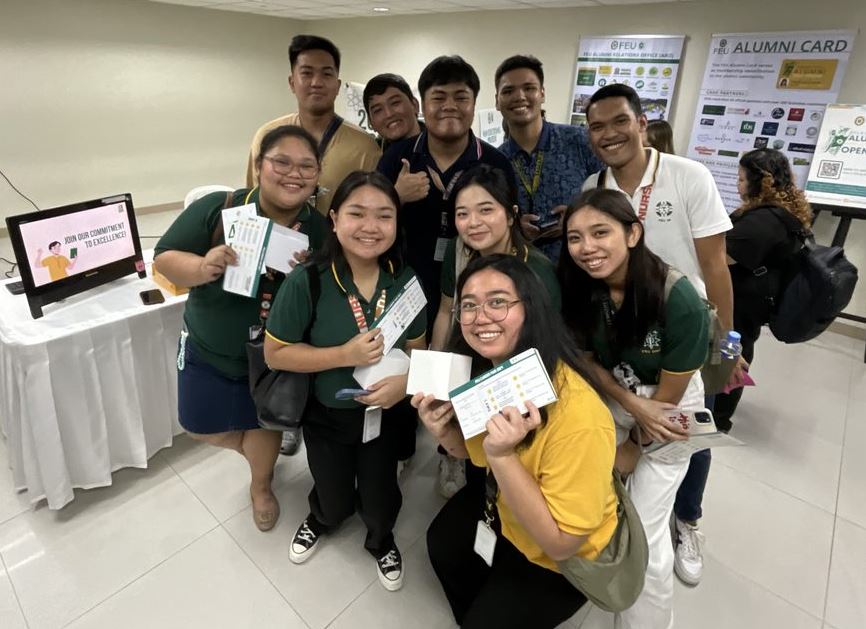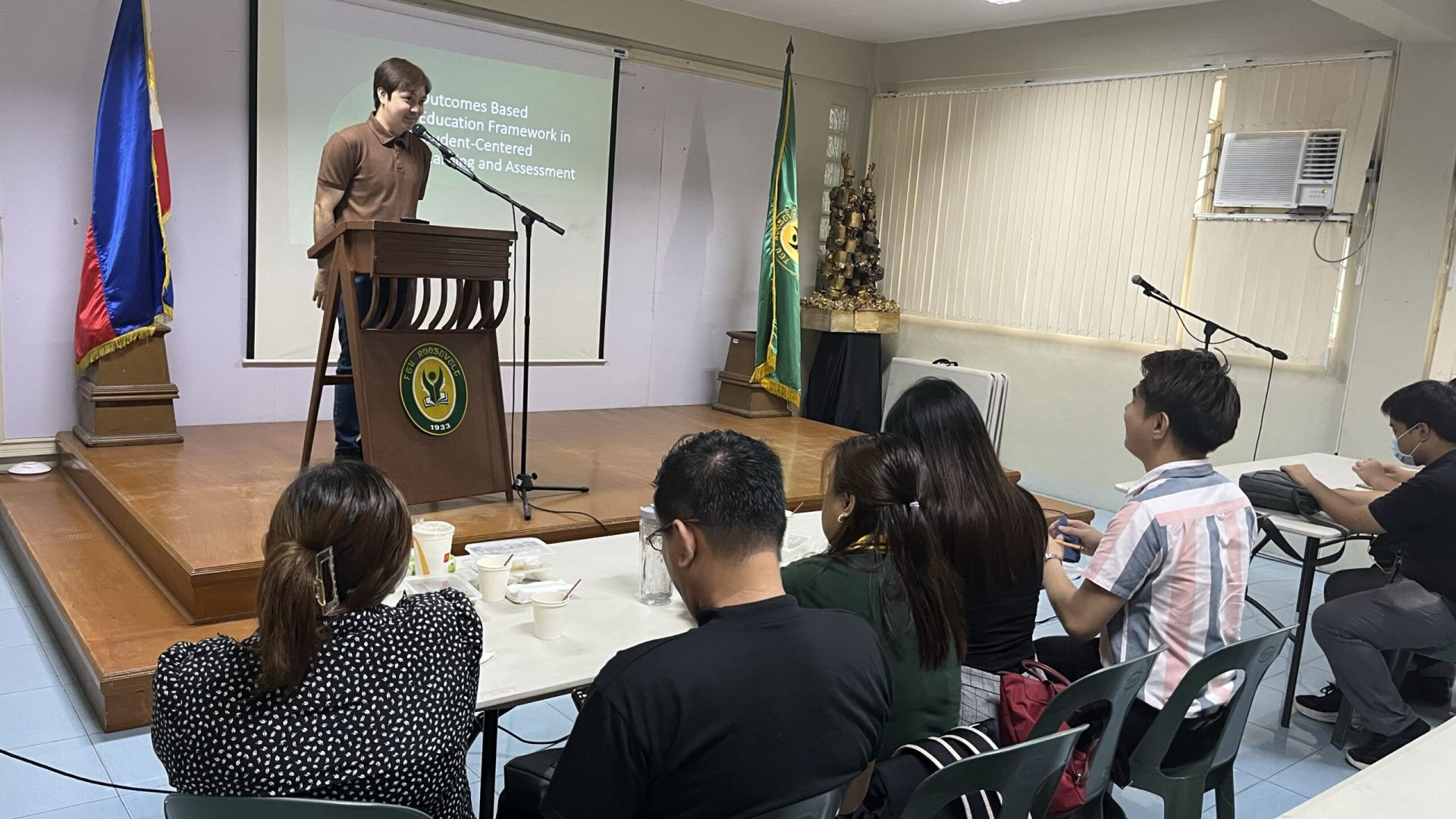The need for more efficient teaching practice and professional teacher development take up a huge chunk of the Philippine education crisis conversation, as made evident in a 2023 World Bank report.[1] This calls for education institutions to invest in programs and initiatives focused on equipping the next generation of Filipino educators.
In response to this, Far Eastern University (FEU) is intensifying its efforts to promote its 400 Teachers Program, which aims to train and enlist a total of 200 higher education teachers, 100 teaching assistants, 50 basic education teachers, and 50 nursing teachers or clinical instructors over the next five years.

Dr. Hyunkyung Lee, international professor from FEU, discusses the implications of Smart Nation on teaching and learning practices during the Luzon leg of the National Symposium on Innovations in Teaching and Learning on Industry 4.0 and Smart Nation. Media Center Services 
As part of the Teacher Training Caravan, a teacher engagement workshop on curriculum alignment, SOLO taxonomy, and outcomes-based assessment for student-centered learning is held at FEU Roosevelt Academic Affairs Office.
As part of the Teacher Training Caravan, a teacher engagement workshop on curriculum alignment, SOLO taxonomy, and outcomes-based assessment for student-centered learning is held at FEU Roosevelt. Academic Affairs Office

Those who join the program will receive a scholarship enabling them to take four 90-hour engagement sessions centered on student-centered pedagogies, assessment in student-centered classrooms, critical thinking and advanced communication, and research-based teaching and learning.
“The FEU 400 Teachers Program is a testament to our commitment to the education mission. By investing in our teachers’ professional development, we are not only enhancing the quality of education at FEU but also contributing to the broader educational landscape in the Philippines,” said Dr. Maria Teresa Trinidad P. Tinio, Senior Vice President for Academic Affairs.
After completing the program, participants will be required to render return service as part of the scholarship agreement. By welcoming these trained teachers into the workforce, FEU also helps address the severe shortage of teaching staff in the country, as indicated in the latest Programme for International Student Assessment.[2]
Advancing quality education beyond the campus
Aside from the shortage of teaching staff, several Philippine education institutions also face obvious resource constraints, leading to a decline in teaching quality and professional development opportunities. This becomes more pronounced in poorer communities and provinces in the country.[3]
The FEU Community Networking to Nurture Education Coaching and Training: Teacher Training Caravan goes beyond the campus grounds to conduct teacher engagement workshops in areas outside Metro Manila. The program offers free workshops and continuing professional development units for teachers in FEU partner schools and communities including Batangas, Cavite, Cainta, Cabanatuan, Nueva Ecija, and Pampanga.
“We believe that teacher development is at the cornerstone of educational excellence. By offering professional development opportunities to teachers in underserved areas, we aim to bridge the gap in education quality and provide every teacher with the tools they need to succeed,” said Dr. Tinio.
Further enhancing its reputation for high-quality education, FEU has been selected as a partner of the Commission on Higher Education for this year’s tri-regional National Symposium on Innovations in Teaching and Learning on Industry 4.0 and Smart Nation. The symposium is disseminating various teaching and learning strategies to higher education institutions throughout the Philippines.
Through these initiatives, FEU supports the United Nations Sustainable Development Goal 4 (Quality Education) by increasing the number of qualified teaching professionals within and beyond the university. By intensifying its teacher development programs, FEU sets a benchmark for educational institutions nationwide and positions itself as a leader in shaping the future of education in the Philippines.
[1] https://www.worldbank.org/en/region/eap/publication/fixing-the-foundation
[2]https://legacy.senate.gov.ph/press_release/2023/1217_gatchalian1.asp
[3]https://www.worldbank.org/en/country/philippines/publication/assessing-basic-education-service-delivery-in-the-philippines-public-education-expenditure-tracking-and-quantitative-service-delivery-study




